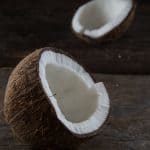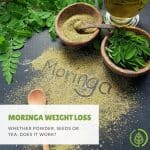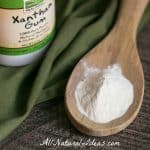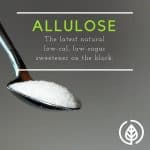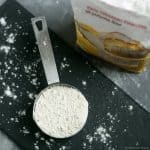Beets… they’re not just for salads and veggie juices anymore. You may have spit them out when you were a kid, but these days, it’s easy to enjoy the organic beet powder benefits from a supplement.
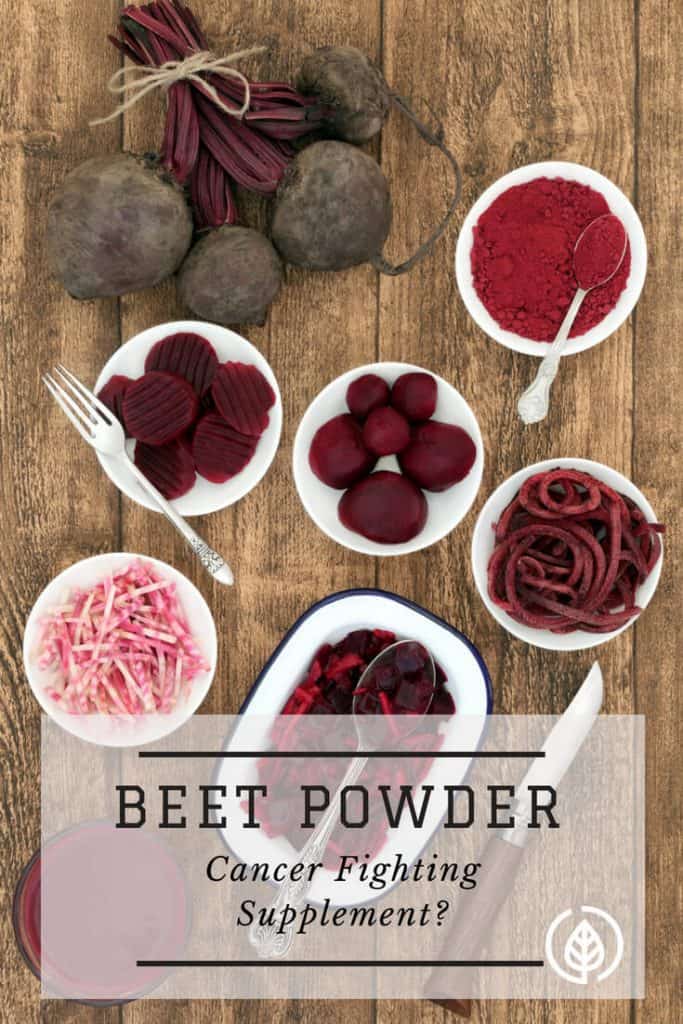
Beets are back in business. There’s a growing interest in this sweet root vegetable.
So much so, it seems, the Internet is freaking out about them.
Sorry for the hyperbole. But that’s how some headlines hook readers in.
Don’t believe the hype? Do you think there’s no way an article about beets uses that headline?
Here’s one for you: “The Internet is Freaking Out Over this Mermaid Toast.”
Although the title doesn’t say, “Why The Internet is Freaking Out Over Beets,” the article does feature this earthy-tasting cousin of rutabaga and turnips.
At this point, you’re probably wondering, what’s mermaid toast? It’s a rainbow-colored superfood blend that contains beet juice.
So move over acai powder. You, too, turmeric. The latest health food supplement is beet powder.
What is it?
Love them or leave them, there’s no denying beetroot offers numerous health benefits.
But perhaps the thought of eating this reddish and rotund veggy whole makes you squeamish? The good news is the root can be grinded up into powder form.
And even better news, you don’t have to grow it in your garden and grind it yourself. There are commercial brands of beet powder that make it easy to get the benefits.
Speaking of which….
Health benefits of beetroot
Because of the growing interest in Beta vulgaris rubra–those who can’t stand its taste would no doubt agree with the apt middle botanical name–more research studies are being conducted.
According to this research in Nutrients, red beetroot has well-documented health benefits.
Let’s look at some of them….
Good For Love Making
It has the ability to normalize blood pressure. Beetroot does this by increasing nitric oxide (NO). All 30-some trillion of your cells contain NO.
The blood vessels in your body, if they were stretched out, would measure an astounding 100,000 miles. That’s a long way for your blood to have to travel.
Beet powder acts as a vasodilator. This means it relaxes the muscles of your blood vessels.
This is turn causes a widening of the blood vessels. Consequently, your blood flow increases and your blood pressure lowers.
The improvement of blood flow is one reason that historically, beets have been used as an aphrodisiac. In fact, according to The History Kitchen, the use of it to boost amorous feelings dates back at least to ancient Rome.
A brothel in Pompeii, the Roman city buried by a volcano in 79 A.D., features frescoes of beets. The History Kitchen also suggests the Greek goddess of love, Aphrodite, ate beets to enhance her sex appeal.
And although beet powder won’t likely overtake Viagra or Cialis as the most common erectile dysfunction (ED) remedy, it might help with it.
That’s because NO helps improve blood flow to the penis.
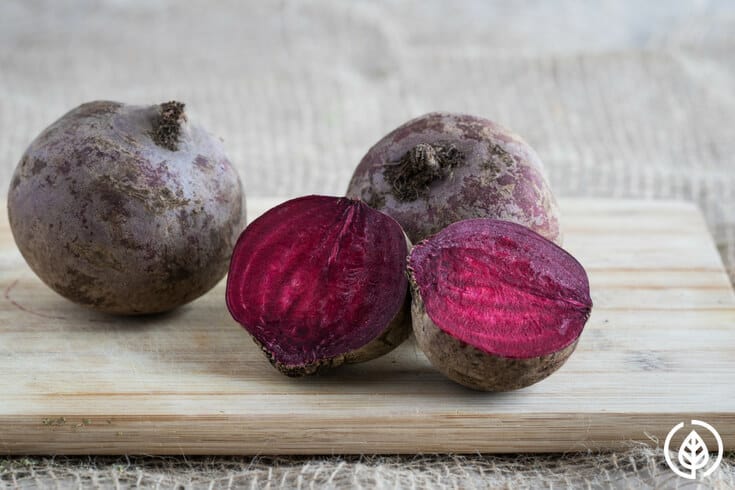
Fights Inflammation
According to the Nutrients research, beetroot offers promise as a therapeutic ingredient in a wide range of diseases. Especially diseases that have at their root (no pun intended) inflammation as the catalyst.
The main beet powder benefits derive from betalain.
Betalain is a pigment. It’s what gives the veggies its red hue.
Beetroot actually was used in the 19th century by women as a lipstick and rouge, according to the History Kitchen article. (It can also serve as a natural food coloring agent.)
But giving the veggies that beet-red color isn’t the only thing betalain does. Within the last few decades, research has determined that betalian acts as a potent antioxidant.
Antioxidant
In fact, betalian is such a strong antioxidant, it helps both prevent and fight cancer.
In addition, there are other inflammatory diseases that beetroot can help with. According to the Nutrients research, it can lessen the severity of atherosclerosis, type 2 diabetes and dementia.
Moreover, liver disease and arthritis are two additional inflammatory conditions that beetroot might help.
Good for Genetic Defects?
Don’t freak out about anything. Not beats. And certainly not the following statistic…
There is a gene in your DNA that’s called MTHFR. Approximately 50% of all people may carry a mutation of this gene.
And if this mutation is expressed, it can lead to serious autoimmune digestive issues. MTHFR mutation can also eventually contribute to heart disease, cancer and Alzheimer’s disease.
MTHFR makes an enzyme that converts vitamin B9 into an active, usable form. Furthermore, the gene helps detoxify your body.
According to this functional medicine doctor site, beetroot powder is highly beneficial for those with the mutation. The reason why is it converts homocysteine to methionine.
High levels of homocysteine are linked with a higher risk of heart attack and stroke. But when your body is able to efficiently convert homocysteine to methionine, this activates your body’s best detox weapon: glutathione.
Moreover, as long as you’re not guzzling loads of beet juice, the powder can help lower blood sugar levels.
(A serving of beet juice contains over 20 grams of sugar in comparison to a few grams for a serving of the powder.)
Also, the powder is a good source of fiber, folate, magnesium, potassium, iron, and zinc.
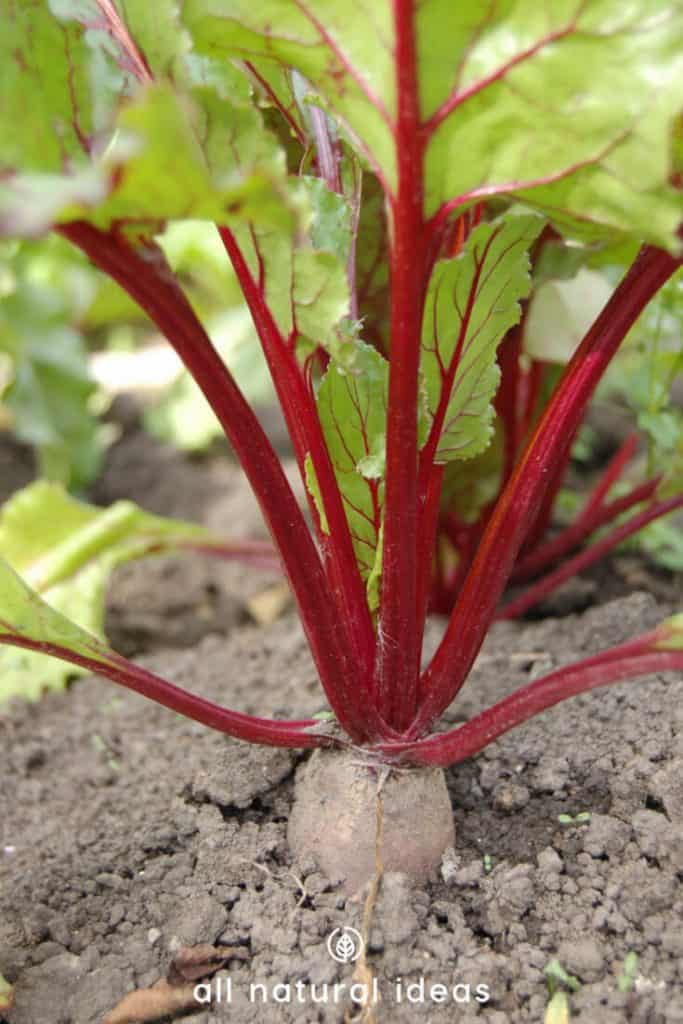
Beet Powder: Does It Work?
If you like the veggie in salads, you’re getting lots of vitamins and minerals.
But how do you know if the powder works?
After all, for any supplement to be considered beneficial for health, the compounds must be able to survive digestion. And not only that, the active compounds have to flow into the blood supply to nourish all your cells.
Let’s revisit the research in the journal, Nutrients. Two studies investigate whether the compounds in beet juice get absorbed by people after consuming it.
The researchers analyze the urine of the study participants. The findings are that the absorption is actually only a small amount.
But that doesn’t mean it doesn’t work. On the contrary, the researchers conclude a couple things about the studies.
Just because only a small amount appears in the urine doesn’t mean absorption is poor.
“The use of urinary excretion as a sole indicator of bioavailability has received criticism. It does not account for the circulatory clearance of compounds, thus underestimating true bioavailability,” say the study authors.
Better and more recent studies conclude the compounds in beets cross the intestinal barrier, making their way into the bloodstream.
The amount of compounds that does get into the bloodstream might be relatively small. But the beet compounds that are absorbed seem to benefit health in many ways.
Beet root powder side effects
However, that doesn’t mean it’s good for everybody.
In fact, you might just freak out if you’re not aware of one of the side effects: bloody-looking urine or stools.
But don’t freak out.
It’s a perfectly normal side effect.
For some people, though, beets in any form (powder, juice, whole food) can be problematic.
Some people have trouble eating foods with oxalates. Oxalates are compounds that interfere with nutrient absorption.
Especially the minerals calcium and magnesium, zinc and iron. Oxalates bind to other minerals.
Some people have a hard time passing oxalic acid through the urine. This can eventually lead to the minerals combining to form a kidney stone.
Thus, if you have a history of kidney stones, it might be best to let other people freak out (in a good way) about beetroot powder.
Kidney stones might run in the family. So if you have a genetic predisposition to them, limit your intake of beets in all forms.
According to WebMD, beets can cause low calcium levels and kidney damage. And besides kidney stones, beets contain high levels of purine, which can cause gout.
The lifestyle blog, StyleCraze lists several possible dangers of beetroot powder. Among them are possible allergic reactions such as rashes, hives, itchiness, and even chills and fever.
If you’re not sure how it will affect you, only take a small amount once or twice a day. Also make sure that if you’re taking a powder, it’s organic and GMO-free.
How much beet powder is safe?
That depends.
Do you have trouble passing out oxalic acid in your urine? Then you probably shouldn’t take any.
Are you going to freak out seeing red pee or poo? Again, don’t take that much.
But if you don’t have an allergy to the veggie and don’t have stones, follow the directions on the label.
How much beet powder supplement should I take?
One teaspoon is the suggested serving size for most brands. This amounts to about a 5-gram serving.
To avoid possible negative side effects, the label may caution against having more than two servings a day.
Stick to one serving a day and you just might start freaking out about beets (in a good way).

